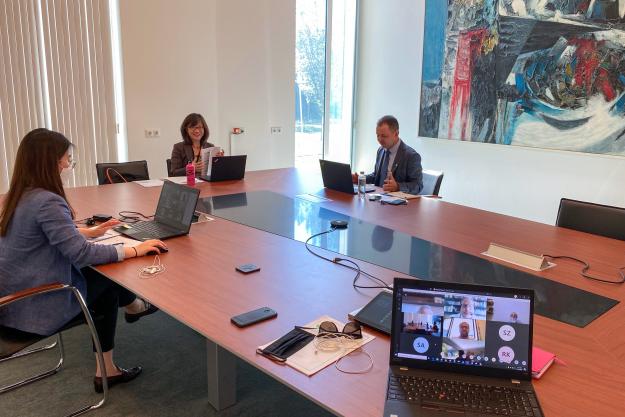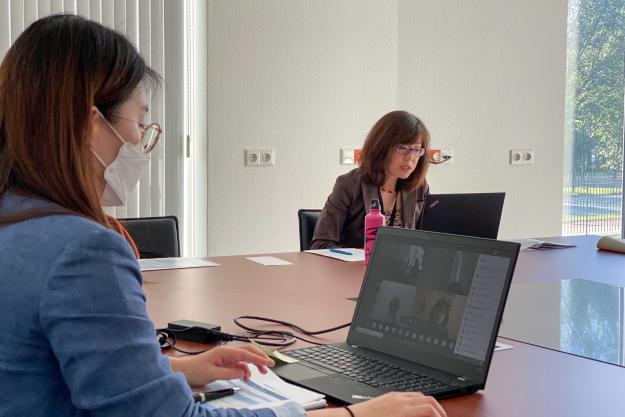
THE HAGUE, Netherlands—5 August 2020—Scientists and chemistry professionals met online on 4 and 5 August for a meeting on Green and Sustainable Chemistry for Safety and Security organised by the Organisation for the Prohibition of Chemical Weapons (OPCW). The meeting focused on discussing recent developments in green and sustainable chemistry and how these can relate to the objectives of the Chemical Weapons Convention (CWC). Participants also proposed projects to be considered by the OPCW.
The OPCW’s Director of the International Cooperation and Assistance Division, Ms Kayoko Gotoh, noted the important role that the OPCW plays in assisting its Member States to enhance the chemical safety and security of their national chemical industries. Introducing the OPCW’s work on green and sustainable chemistry, Ms Gotoh added: “Over the past decades, green and sustainable chemistry has gained in popularity in the scientific and academic community. It continues to be of growing interest, including in the chemical industry, as a framework for minimising the risk of harmful by-products and promoting sustainability.”
The meeting gathered eighteen professionals from thirteen Member States, comprising scientists, technologists and members of professional chemical societies and associations, as well as representatives of international organisations, including the Organisation for Economic Cooperation and Development (OECD), International Union of Pure and Applied Chemistry (IUPAC), European Chemical Industry Council (CEFIC). Participants also seized the opportunity to discuss cooperation opportunities and ways in which the OPCW can best support its Member States to develop sustainable chemical industries.
The participants represented the following OPCW Member States: Bangladesh, Belgium, Brazil, China, Ethiopia, France, Germany, Italy, Pakistan, Philippines, Russia, South Africa and the United States of America.

Background
The OPCW’s Initiative on Green and Sustainable Chemistry was launched in 2016 to enhance the implementation of Article XI of the Chemical Weapons Convention that concerns the economic and technological development of OPCW Member States, and international cooperation in the field of chemical activities.
By supporting green and sustainable chemistry, the OPCW not only seeks to sensitise stakeholders about possible alternatives to toxic chemicals, but also facilitate stakeholder partnerships to ensure a safer, more secure, and sustainable chemistry. This can be achieved through education, research, innovation and implementation of best practices.
Altogether the Secretariat has supported over 20 research projects and fellowships in the last 10 years. Through its Conference Support Programme, the OPCW has also supported six events on the topic of green chemistry since 2014.
The issues connected with green and sustainable chemistry are part of a diverse array of capacity building programmes under Article XI, such as Responsible Care® and Policy and Diplomacy for Scientists workshops.
As the implementing body for the Chemical Weapons Convention, the OPCW, with its 193 Member States, oversees the global endeavour to permanently eliminate chemical weapons. Since the Convention’s entry into force in 1997, it is the most successful disarmament treaty eliminating an entire class of weapons of mass destruction.
Over 98% of all chemical weapon stockpiles declared by possessor States have been destroyed under OPCW verification. For its extensive efforts in eliminating chemical weapons, the OPCW received the 2013 Nobel Peace Prize.
More Information
Promoting Chemistry for Peace: Economic and Technical Development through Chemistry
